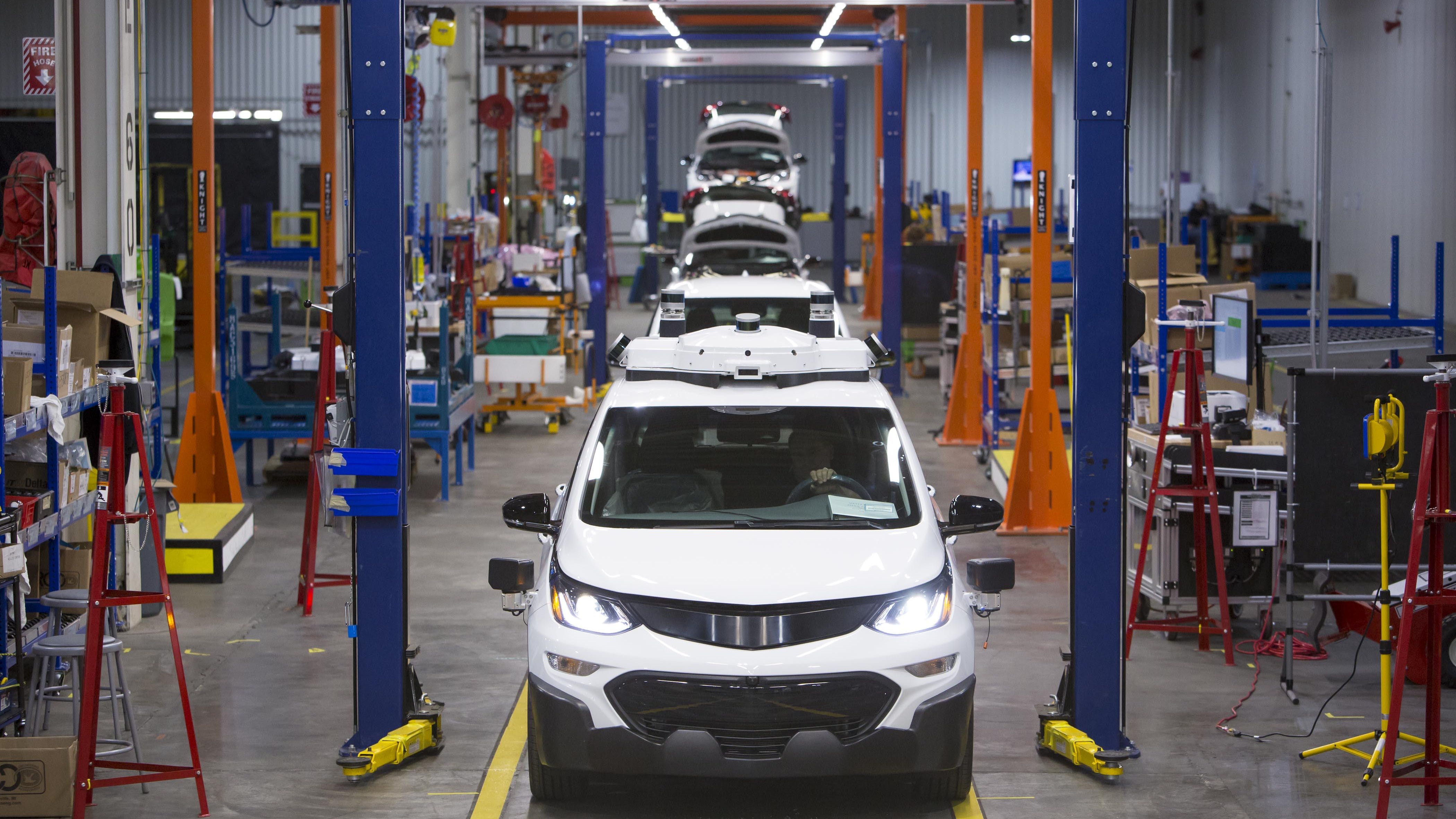$2.25B investment gives GM leg-up in driverless race

Detroit — A multibillion-dollar investment from a Japanese investment firm gives General Motors Co. access to an expanded network of mobility and technology companies — and a leg up in the self-driving race, observers say.
The partnership could help vault the Detroit automaker ahead of its rivals as GM prepares to put its commercial robotic vehicle on the road sometime in 2019, according to industry analysts and Wall Street investors.
The $2.25 billion investment announced Thursday from SoftBank Investment Advisers adds GM to a growing list of SoftBank-financed companies.
The investment firm has significant stakes in graphics chip maker Nvidia Corp., Uber Technologies Inc., DoorDash delivery services, Chinese ride-sharing company DiD and others.
"SoftBank brings an ecosystem to the table," GM President Dan Ammann said during a Thursday call with investors. "Having the partner with the scope and breadth and resources and relationships ... only enhances our opportunities."
The multibillion-dollar bet on the future nets SoftBank a 19.6 percent share in GM Cruise, carmaker's self-driving wing.
CEO Mary Barra and Ammann said the company didn't need the capital help to launch its fleet of fully autonomous commercial vehicles next year. GM wasn't looking for a partner, but it found one, Ammann said.
The deal could be lucrative for both companies, and Wall Street took note. GM shares soared 12.9 percent in trading Thursday to $42.70.
"The turbulent future of personal transportation has tech companies, car companies and financial institutions scrambling to establish a position of strength and control," said Karl Brauer, executive publisher of Autotrader and Kelley Blue Book. "SoftBank doesn’t want to be left behind, as its heavy investment across the self-driving landscape confirms. An alliance with General Motors improves the reach and influence of both companies."
Google's Waymo is seen by some analysts to have superior technology in the autonomous vehicle race. The Silicon Valley company has partnered with Fiat Chrysler Automobiles NV as a supplier for test vehicles. The companies announced Thursday they were beginning talks to use Waymo's technology in autonomous vehicles that Fiat Chrysler would sell.
GM also has a network of dealers, manufacturing plants, financing capabilities, along with its own technology – and, now, the chance to be the platform for any number of SoftBank's investments.
"GM increasingly has all the other pieces in place," said Sam Abuelsamid, analyst with market research and consulting company Navigant Research. "This new relationship now adds an interesting new wrinkle to it."
The SoftBank investment is also a vote of confidence for GM's manufacturing prowess, which has proved problematic for technology companies such as Apple when they've tried to jump into the business of autonomous vehicles.
"Part of our due diligence process when we invest is to look at the landscape," Michael Ronen, managing partner of SoftBank, said Thursday. "We have a lot of respect for the efforts around. Our choice was to be here and aligned with GM for several reasons: safety, the speed, the scale of the effort and our due diligence confirmed what we thought was right, which is this is a leading effort that we want to be part of.”
The $2.25 billion investment will go to GM Cruise Holdings LLC, the company's autonomous vehicle technology arm. Under Barra, GM has invested heavily in robotic cars, targeting a 2019 launch date for a fleet of fully self-driving Cruise AV vehicles in a yet-to-be-named city.
GM Cruise Holdings is a holding company that houses GM's Cruise Automation and lidar company Strobe Inc., which GM acquired in October. GM also reaffirmed Thursday it plans to invest another $1.1 billion of its own money on self-driving vehicles, which the company had previously announced earlier in 2018.
"This investment gives GM Cruise the capital necessary to successfully commercialize at scale," Barra said. "We are on track with our plans. We're 100 percent committed to this mission."
The automaker is still waiting on federal approval for its first autonomous car without a driver, steering wheel or manual controls. It filed a petition with the National Highway Traffic Safety Administration earlier this year to meet 16 safety requirements “in a different way,” given that federal safety regulation language revolves around human drivers and vehicles engineered to be piloted by a human driver.
Gaining federal approval is not guaranteed, and even if GM gets the OK from NHTSA, it will have to negotiate at a state level. There are only seven states in which the Cruise AV could deploy immediately after federal approval, including Michigan. The other six are North Carolina, Tennessee, Georgia, Texas, Colorado and Nevada.
GM has said it is likely the 2019 launch would happen in a city where Cruise Automation, GM’s self-driving unit, is already testing Cruise AVs. Most of that testing happens in downtown San Francisco, but there are also testbeds around the Tech Center in Warren and in Scottsdale, Arizona.
Ammann said Thursday GM is currently focused on what the company views as the most important part of the self-driving technology: safety. He and Barra declined to give a hard date Thursday for when the self-driving fleet would launch next year, or what exactly the commercial program would look like.
The key point for GM executives currently is the program GM launches next year will not be a test program. When the executives say "at scale," they mean the self-driving fleet will be able to operate under a real, unfiltered workload in whatever city the company launches in.
GM's emphasis on safety was one big factor that drew investment from SoftBank, Ronen said.
"We have a lot of flexibility on how we ultimately go to market with his technology," Ammann said. "We're focused right now on the most difficult part of the problem, which is getting the self-driving technology to the point where it's commercially ready for deployment."
ithibodeau@detroitnews.com
Twitter: @Ian_Thibodeau